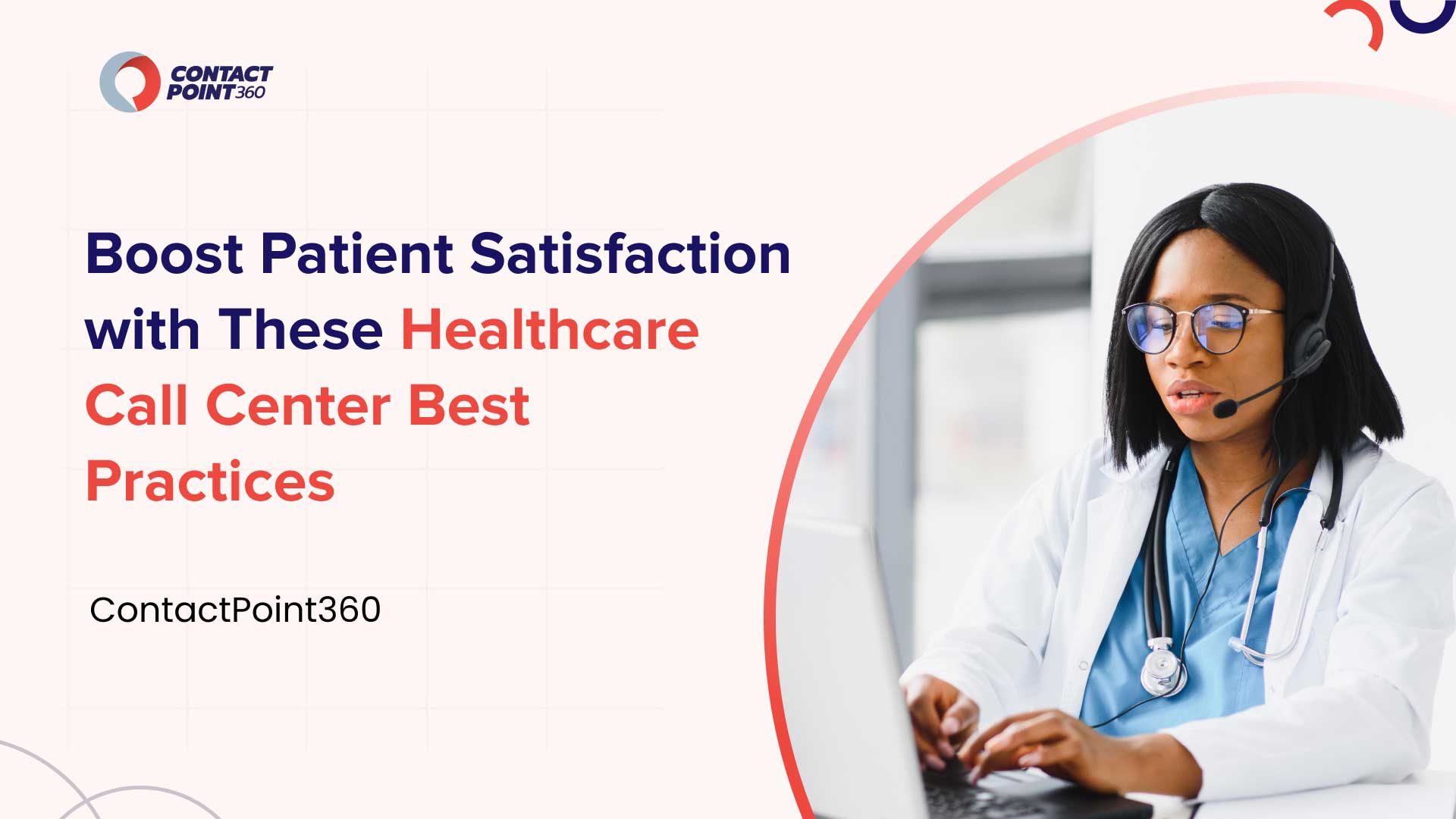Did you know that for many patients, their first impression of a healthcare provider often begins with a call to the healthcare call center?
This initial interaction sets the tone for their entire healthcare experience. Patient satisfaction hinges not just on medical outcomes but also on the quality of service and support they receive from the moment they reach out for assistance.
Patient satisfaction is everything in healthcare. The call center often serves as the first point of contact for patients, making it a critical touchpoint in their overall experience. By implementing best practices tailored to the unique needs of the healthcare industry, call centers c n significantly enhance patient satisfaction, ensuring that each interaction is efficient, empathetic, and compliant with industry standards.
Research by CRICO Strategies revealed that communication problems contributed to 30% of medical malpractice cases evaluated between 2009 and 2013.
In this blog, we’ll explore key healthcare call center best practices, industry standards, and important metrics to monitor for success.
6 Healthcare Call Center Best Practices
1. Implement Rigorous Training Programs
Effective training is the cornerstone of any successful call center. In the healthcare sector, it’s crucial to ensure that call center agents are well-versed in medical terminology, patient privacy laws (like HIPAA in the United States), and empathetic communication.
Key Training Elements:
- Medical Terminology: Understanding common medical terms helps agents communicate more effectively with patients.
- Privacy and Compliance: Training on HIPAA and other relevant regulations ensures patient information is handled correctly.
- Soft Skills: Empathy, patience, and active listening are essential for handling sensitive patient inquiries.
2. Adopt Advanced Technology Solutions
Leveraging advanced technology can streamline operations and improve patient experiences. Here are some tech solutions to consider:
- Interactive Voice Response (IVR): Helps direct calls to the appropriate department or agent, reducing wait times.
- Customer Relationship Management (CRM) Systems: Centralizes patient information for quick access and personalized service.
- Omnichannel Support: Offers patients multiple channels to reach out, such as phone, email, chat, and social media. Provide your loyal customers with a delightful experience on any channel with omnichannel customer experience outsourcing.
3. Monitor and Improve Key Metrics
Tracking and analyzing healthcare call center metrics can provide insights into performance and areas for improvement. Important metrics include:
- Average Handle Time (AHT): Measures the average duration of a call, including hold time and after-call work. Strive for a balance between efficiency and thoroughness.
- First Call Resolution (FCR): Indicates the percentage of issues resolved on the first call. High FCR rates correlate with higher patient satisfaction.
- Patient Satisfaction Score: Direct feedback from patients about their call center experience can highlight strengths and areas for improvement.
Boost Your Healthcare CX Metrics with
for ContactPoint360’s Proven Strategies
4. Ensure Compliance with Industry Standards
Adhering to healthcare call center industry standards is vital for both legal compliance and maintaining high service quality. Standards may vary by region, but some universally important ones include:
- HIPAA Compliance: Ensuring all interactions and data handling comply with HIPAA regulations to protect patient privacy.
- Accreditation from Bodies like URAC: Organizations like URAC offer accreditation for healthcare call centers, ensuring they meet high standards of service and care.
5. Prioritize Continuous Improvement
The healthcare industry is dynamic, with constantly evolving patient needs and regulatory requirements. Call centers should embrace a culture of continuous improvement to stay ahead.
Strategies for Continuous Improvement:
- Regular Training Updates: Keep training programs current with the latest industry developments and technologies.
- Feedback Loops: Collect and act on feedback from patients and agents to identify and address pain points.
- Performance Reviews: Conduct regular performance reviews and provide constructive feedback to agents.
6. Enhance Communication and Empathy
Patients often contact call centers in distress or confusion. Empathetic and clear communication can significantly improve their experience.
Communication Tips:
- Active Listening: Ensure agents fully understand patient concerns before responding.
- Clear Instructions: Provide easy-to-understand guidance and next steps.
- Empathy and Reassurance: Show empathy and reassure patients that their concerns are being taken seriously.
Conclusion
By adopting these healthcare call center best practices, healthcare providers can enhance patient satisfaction and ensure their call centers operate efficiently and effectively. Prioritizing rigorous training, advanced technology, key metrics monitoring, industry standards compliance, continuous improvement, and empathetic communication will lead to a superior patient experience, fostering trust and loyalty. This commitment not only fosters trust and loyalty among patients but also positions healthcare providers as leaders in delivering exceptional patient care through their call center services.
Ready to take your healthcare call center to the next level?
ContactPoint360’s healthcare call center outsourcing services can help you implement these best practices and transform your patient experience.
Losing Trust Due to Delays?
Get Patient-Focused Solutions Today!
Frequently Asked Questions
What are the essential training elements for healthcare call center agents?
Key training elements include understanding medical terminology, ensuring privacy and compliance with regulations like HIPAA, and developing soft skills such as empathy, patience, and active listening.
How can technology improve healthcare call center operations?
Advanced technology solutions like Interactive Voice Response (IVR) systems, Customer Relationship Management (CRM) systems, and omnichannel support can streamline operations and enhance patient experiences by reducing wait times and personalizing service.
What metrics should healthcare call centers monitor?
Important metrics include Average Handle Time (AHT), First Call Resolution (FCR), and Patient Satisfaction Scores, as they provide insights into call center performance and areas for improvement.
Why is compliance with industry standards important for healthcare call centers?
Compliance with industry standards, such as HIPAA and accreditation from bodies like URAC, is crucial for legal compliance, protecting patient privacy, and maintaining high service quality.
How can healthcare call centers ensure continuous improvement?
Healthcare call centers can ensure continuous improvement by regularly updating training programs, collecting and acting on feedback from patients and agents, and conducting regular performance reviews to provide constructive feedback.
How can healthcare call centers handle high call volumes efficiently?
Healthcare call centers can manage high call volumes by using advanced technology like Interactive Voice Response (IVR) systems and Customer Relationship Management (CRM) systems, as well as offering multiple contact options such as phone, email, chat, and social media.
 United States
United States Canada
Canada Mexico
Mexico Colombia
Colombia Jamaica
Jamaica Philippines
Philippines India
India Egypt
Egypt




